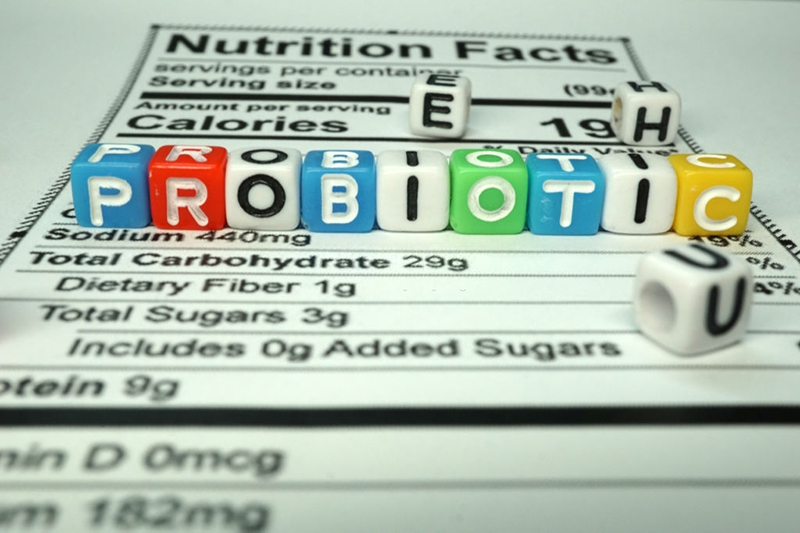What exactly is raw probiotics?
Raw Probiotics is a revolutionary line of raw, whole-food probiotic solutions that mimic the benefits of fermented foods. These daily and targeted formulae are produced with Bulgarian yogurt, Eastern European wild kefir, scientifically tested probiotic strains, fruits and vegetables—plus protein-digesting enzymes—and are inspired by the study of Dr. Eli Metchnikoff, the “Father of Probiotics.” probioticseverything.com
Raw Probiotics are available in daily and targeted condition-specific forms, and are never heated above 115°F, preserving more active nutrients, enzymes, and probiotic strains while providing the most targeted health benefit. † Raw Probiotics are raw, unprocessed, and unadulterated, with no binders, fillers, or other artificial or chemical additives commonly found in other probiotic supplements (such as magnesium stearate and sodium ascorbate). All of our Raw Probiotics solutions contain high-quality, diverse strains of probiotics with a high cell count, boosting natural flora variety. They’re also grown and packaged in temperature-controlled environments, ensuring potency even after expiration when kept in the specified storage settings.
What Are the Benefits of Probiotics?
The influence of probiotics on our brain is one of the most exciting aspects of probiotics study. Probiotics have been shown in numerous studies to help people overcome immune-mediated deficiencies in the gut-brain-microbiota axis. In layman’s words, what does this mean? This means that even minor psychological stress can wreak havoc on this vital axis. The signaling and interaction between our stomach, brain, and microorganisms is fundamentally governed by this axis. If this axis is disrupted, our brain’s functionality may suffer. probioticseverything.com raw probiotics
As a result, a healthy microbiota is essential for neurological health. According to several studies, keeping a healthy bacterial balance in our gut is directly linked to serotonin signaling. Because serotonin is so important for mental health, sadness and a bacterial imbalance in our gut are inextricably intertwined. It also implies that taking a probiotic and consuming probiotic-rich meals can aid in the resolution of this issue. probioticseverything.com
Imagine how much this axis is harmed when poor diet, lack of sleep, and multiple rounds of antibiotics are added to the mix. Other scientific investigations have discovered that probiotics may assist to reduce anxiety symptoms. Furthermore, other studies suggests that taking probiotics can aid in the reduction of negative thoughts. This indicates that good gut health has an intriguing direct link to depression. probioticseverything.com raw probiotics
Probiotics also have an interesting influence on skin health. In reality, three big studies found a link between dairy consumption and acne — but not between acne and fermented dairy. Because acne is caused by an accumulation of bacteria in the gut, balancing the bacteria in your stomach is a logical step to take if you want to avoid outbreaks. Specific probiotic extracts have even been found to be effective in decreasing acne in some studies. probioticseverything.com
Another study looked into probiotic supplementation’s psychological advantages. Any of the 130 participants in this trial who had higher depressive symptoms at the start of the study had a significant improvement in their mood after taking a probiotic. Fermented foods have been consumed by ancient cultures for thousands of years. Despite the lack of scientific evidence, they continued to practice based on anecdotal evidence. probioticseverything.com
Microbes (such as lactobacillus and bifidobacteria) influence brain function in both direct and indirect ways, according to scientists. I’m not sure why the yogurt makers haven’t jumped on this nugget of science yet to help them sell their product, but it’s possible that they will soon. probioticseverything.com
If you don’t eat probiotics, what happens?
If you’re experiencing or noticing any of the symptoms listed below, you may have a gut imbalance and should see your doctor. Food sensitivities or allergies, digestive disorders (such as gas and bloating), weight gain, and skin problems are some of the symptoms (like acne, eczema, or rosacea). There are additional symptoms that could be linked, such as fatigue, mood changes, autoimmune illnesses, depression, anxiety, difficulty concentrating, or joint discomfort. When the bacteria in your stomach are out of equilibrium, your body can’t digest food as well. Irritable bowel syndrome (IBS), small bacterial overgrowth (SIBO), and leaky gut syndrome are all conditions that can result from this. probioticseverything.com raw probiotics
What Foods Have Probiotics in Them?
It’s as simple as eating particular foods to promote the growth of healthy bacteria and to prevent the growth of bad bacteria. The greatest foods are those that naturally contain beneficial bacteria and are thus introduced to the gut as soon as they are digested. These foods are known as probiotic foods, and there are a variety of delectable possibilities. Yogurt, kefir, sauerkraut, kimchi, tempeh, sourdough bread, kombucha, miso, cottage cheese, and pickles all support a healthy gut flora balance. Furthermore, the gut contains more than 70% of our immune cells, which are highly reliant on healthy gut flora. probioticseverything.com

